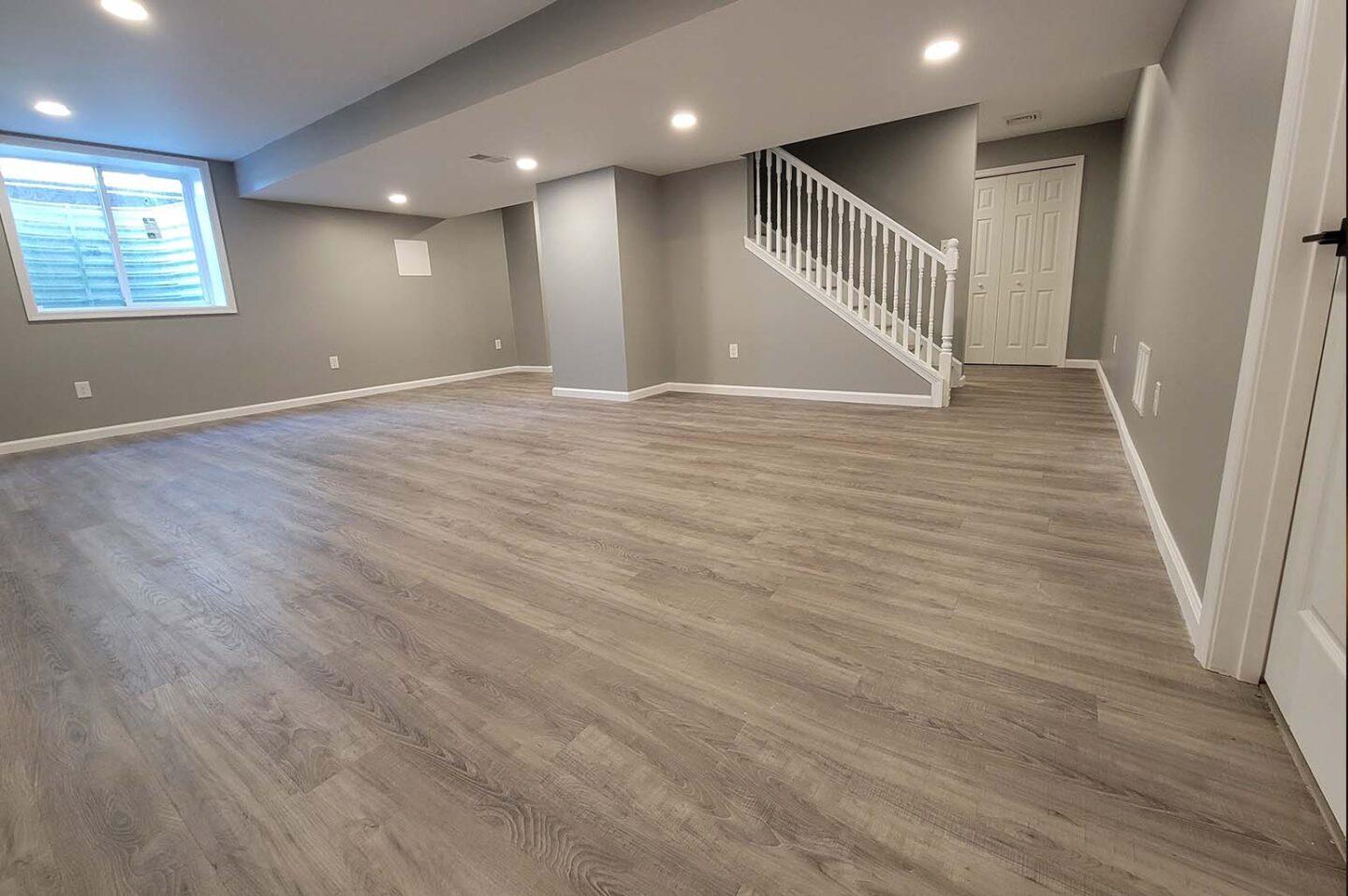Ensure a successful basement renovation with our essential guide. From planning to execution, discover key considerations for your project’s success.

Are you tired of your dark and musty basement that serves as nothing more than a storage space? Have you been considering a renovation to turn it into a functional living area for your family? Basement renovations can be an exciting project that adds value to your home and creates much-needed extra living space.
Before diving into this investment, there are important things to consider. Let’s discuss key factors that often get overlooked in the excitement of starting a basement renovation. Keep reading to ensure a smooth and successful renovation process.

Budget Planning
Budget planning is the cornerstone of any renovation project. Without a clear budget in mind, costs can quickly spiral out of control, leaving you with a half-completed project and an empty bank account. To ensure that your project stays on track financially, be sure to include all potential costs, including materials, labor, and unexpected expenses.
It’s always wise to add a contingency of around 10–20% to your budget for unforeseen costs. If you’re working with a contractor, make sure you have a detailed agreement about the budget and payment schedule to avoid misunderstandings later. With a comprehensive budget, you can confidently embark on your basement renovation without fear of overspending.
Professional Help
If you’re thinking about renovating your basement, you need to consider whether or not you have the necessary skills to take on the project yourself. While it may be tempting to save some money and complete the renovation on your own, basement renovations are complex and require specialized skills.
To ensure quality work and a successful outcome, it’s best to call in the professionals. When looking for basement renovations in Georgina, or any other location, be sure to do your research and find a reputable company with experience in the field. Aside from having the skills needed to get the job done, they can also offer valuable advice and guidance throughout the process.
Building Codes and Permits
Before starting any renovation project, don’t forget to check your local building codes and regulations. These rules can vary widely depending on your location, so you need to do your research to ensure compliance. Even if you believe your project is simple, the particular requirements in your area might surprise you.
Once you know the rules, it’s time to apply for any necessary permits. Although the process might be a bit tedious, getting the right permits is better than facing costly fines and having to redo work that doesn’t meet code requirements.
Moisture Control
Basements are a common victim of moisture-related problems such as dampness and flooding. Such issues weaken the foundation of the house and lead to the growth of mold and mildew, which pose health risks to the inhabitants. While some homeowners try to solve the problem on their own, it is advisable to consider professional waterproofing services to avoid future issues.
Waterproofing experts have vast knowledge and experience in handling all types of basement moisture problems. They use state-of-the-art technology and materials to seal off walls, floors, and other vulnerable areas, ensuring that your basement remains dry and mold-free for years to come.
Lighting and Ventilation
The biggest challenges with basement renovations are lighting and ventilation. Basements typically have small or no windows, making them dark and stuffy spaces. To create a comfortable living area, it’s essential to incorporate proper lighting and ventilation into your renovation plans.
Consider installing energy-efficient LED lights that mimic natural light to brighten up the space. Or, if your budget allows, consider adding a window or two to bring in some natural light. As for ventilation, you can opt for an exhaust fan or a dehumidifier to improve air circulation and prevent musty odors.
Ceiling Height
Most basements have lower ceilings compared to other parts of the house. Before you begin your basement renovation project, carefully measure the ceiling height. You need to ensure that it meets the building code requirements in your area, which usually stipulate a minimum height for habitable rooms.
A higher ceiling will result in a more comfortable and visually open space. If your basement ceiling is too low, you might need to dig out the basement floor or reroute ductwork and pipes to increase height. On the downside, these solutions can be time-consuming and costly, and they may require additional permits.
In Conclusion
Transforming your basement into a livable space is an exciting endeavor that can add significant value to your home. However, you need to plan carefully and consider all the important aspects, including budgeting, professional help, building codes, moisture control, lighting, ventilation, and ceiling height. With thorough research, careful planning, and the assistance of professionals, you’re well on your way to creating a functional and attractive basement that serves as more than just a storage space. Embarking on this journey will result in a successful and satisfying renovation experience.
